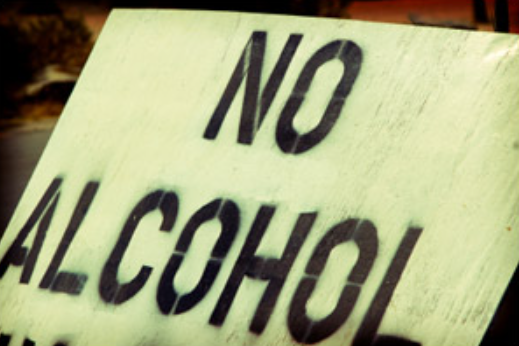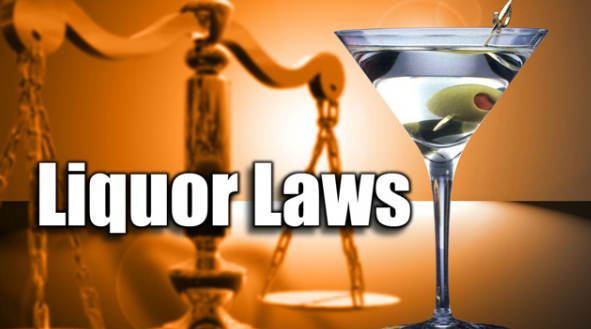The complex and multifaceted nature of alcohol and its association with crime has been a topic of continual scrutiny by law enforcement, psychologists, and sociologists alike. This article aims to address the most commonly asked questions about “Which Crime is Often Related to Alcohol Use Quizlet”.
How Does Alcohol Contribute to Criminal Behavior?

Substance use, especially alcohol, has been linked to criminal behavior for a variety of reasons. When consumed excessively, alcohol impairs judgment, lowers inhibitions, and increases the likelihood of risky behavior. It often leads to aggression and may exacerbate underlying mental health issues that could culminate in crime.
According to a report by the National Council on Alcoholism and Drug Dependence, up to 60% of violent offenders were found to be under the influence of alcohol during the commission of their crime, reinforcing the connection between alcohol and criminal behavior.
The Unsettling Prevalence of DUI Offenses

When considering crimes associated with alcohol use, Driving Under Influence (DUI) offenses are often the first that comes to mind. The law takes a hard stance on drunk driving due to its significant danger to the public. The National Highway Traffic Safety Administration revealed that in 2020, 28% of all traffic-related deaths in the US involved alcohol-impaired drivers. DUI offenses, therefore, form a substantial chunk of alcohol-related crimes.
The Violent Sting of Alcohol Abuse

The relationship between alcohol abuse and violent crimes is a grave concern. Alcohol-fueled violence can lead to severe physical harm and emotional distress. The World Health Organization reports that alcohol consumption, particularly in heavy doses, is a significant contributor to the occurrence of domestic violence and physical altercations.
Public Intoxication and Criminal Activity
Public intoxication, while sometimes perceived as a minor offense, can lead to more serious crimes. Intoxicated individuals might become disorderly, engage in vandalism, or even assault others. Communities and law enforcement agencies continue to grapple with this issue, as these actions impact public safety and quality of life.
Navigating the Consequences of Alcohol-related Offenses

The repercussions of alcohol-related crimes can be substantial, affecting not only the offenders but also their families and communities. The legal consequences may involve fines, imprisonment, and mandatory participation in alcohol education or treatment programs.
Do Laws Specifically Target Alcohol-related Crimes?

Yes, there are laws specifically targeting alcohol-related crimes. For instance, DUI laws aim to deter drunk driving and enhance road safety. Other legal measures include regulations on the sale and consumption of alcohol, especially targeting underage drinking and public intoxication. These laws strive to control alcohol-related harm and contribute to public safety.
Alcohol-related Property Crimes
While violent crimes often grab the headlines, alcohol-related property crimes, including burglary, arson, and vandalism, are also a significant concern. A study by the National Institute of Justice found that a large portion of those arrested for property crimes had alcohol in their system, indicating a potential link.
The Staggering Impact of Alcohol on Domestic Violence Incidents
The effects of alcohol on domestic violence incidents are particularly distressing. Alcohol can escalate conflicts and trigger violent behavior, making home a dangerous place for victims. Various studies, including those conducted by the National Institute on Alcohol Abuse and Alcoholism, have indicated that alcohol is a significant risk factor in domestic violence cases.
Alcohol’s Role in Sexual Assault Incidents
Beyond violent and property crimes, another distressing area of focus is the prevalence of alcohol use in instances of sexual assault. It’s a harrowing truth that alcohol is frequently involved in these crimes, both as a tool for perpetrators and as a factor affecting victims’ vulnerability.
The National Institute on Alcohol Abuse and Alcoholism found that around half of sexual assault victims reported that they were drinking alcohol at the time of the assault. For the perpetrators, alcohol can provide a misguided sense of justification for their actions and may be used as a mechanism to incapacitate victims.
These grim statistics underline the importance of education about the dangers of excessive drinking and the necessity of consent in all situations. Addressing this issue demands proactive efforts from individuals, communities, educational institutions, and law enforcement agencies alike.
The Impact on Youth Crime
Alcohol abuse is not restricted to adults; it’s a burgeoning issue among the youth as well. The propensity for young people to engage in risky behaviors while under the influence of alcohol has led to an increased incidence of youth crime. Alcohol-related offenses among the youth include DUI, vandalism, assault, and public order offenses.
The American Journal of Public Health published a study indicating that alcohol use among adolescents is a significant predictor of criminal behavior in adulthood, stressing the need for early intervention and prevention efforts.
Substance Co-Use and Crime
While this article mainly focuses on alcohol, it’s worth noting that the co-use of alcohol and other substances can further intensify the risk of criminal behavior. Alcohol, when used in conjunction with drugs, can amplify the substances’ effects, leading to greater impairment and increased propensity for criminal activities.
According to the National Bureau of Economic Research, there’s a close relationship between drug use, alcohol use, and criminal behavior. Their research shows that substance abuse may directly lead to criminal behavior, indirectly lead to criminal activity, or result from it.
Alcohol and Crime: Prevention and Intervention
Understanding the relationship between alcohol and crime is paramount to developing effective prevention and intervention strategies. Key elements of these strategies include promoting responsible drinking, providing access to substance abuse treatment, and implementing appropriate legal and policy measures.
Programs that aim to reduce alcohol abuse, such as those promoting social norms of moderation, can play a crucial role in mitigating alcohol-related crime. Furthermore, programs that provide early intervention for at-risk youth can help prevent the onset of alcohol-related criminal behavior.
In terms of interventions, comprehensive approaches that combine law enforcement, healthcare, and community involvement have proven effective. These may include specialized courts for alcohol-related offenses, treatment programs as part of sentencing, and community-based recovery resources.
Also Read: Who Pays for the Renovations on Vacation House Rules?
Conclusion
The profound impact of alcohol on crime is a stark reality that demands our attention. From DUI offenses to domestic violence, from public intoxication to sexual assault, alcohol misuse is a common thread weaving through many criminal activities.
Through understanding “Which Crime is Often Related to Alcohol Use Quizlet”, we can better equip ourselves to address this issue effectively. By focusing on prevention, early intervention, treatment, and legal measures, we can significantly reduce the rate of alcohol-related offenses.
As we move forward, let’s strive for a world where the harmful effects of alcohol misuse are fully recognized, and appropriate actions are taken to prevent the associated crimes. By working together and prioritizing health, safety, and responsibility, we can create a brighter, safer future for all.




![Which of These Actions is a Homeland Security Violation? [Dos and Don'ts] 15 Which of These Actions is a Homeland Security Violation](https://fitaxal.com/wp-content/uploads/2023/07/Which-of-These-Actions-is-a-Homeland-Security-Violation.png)